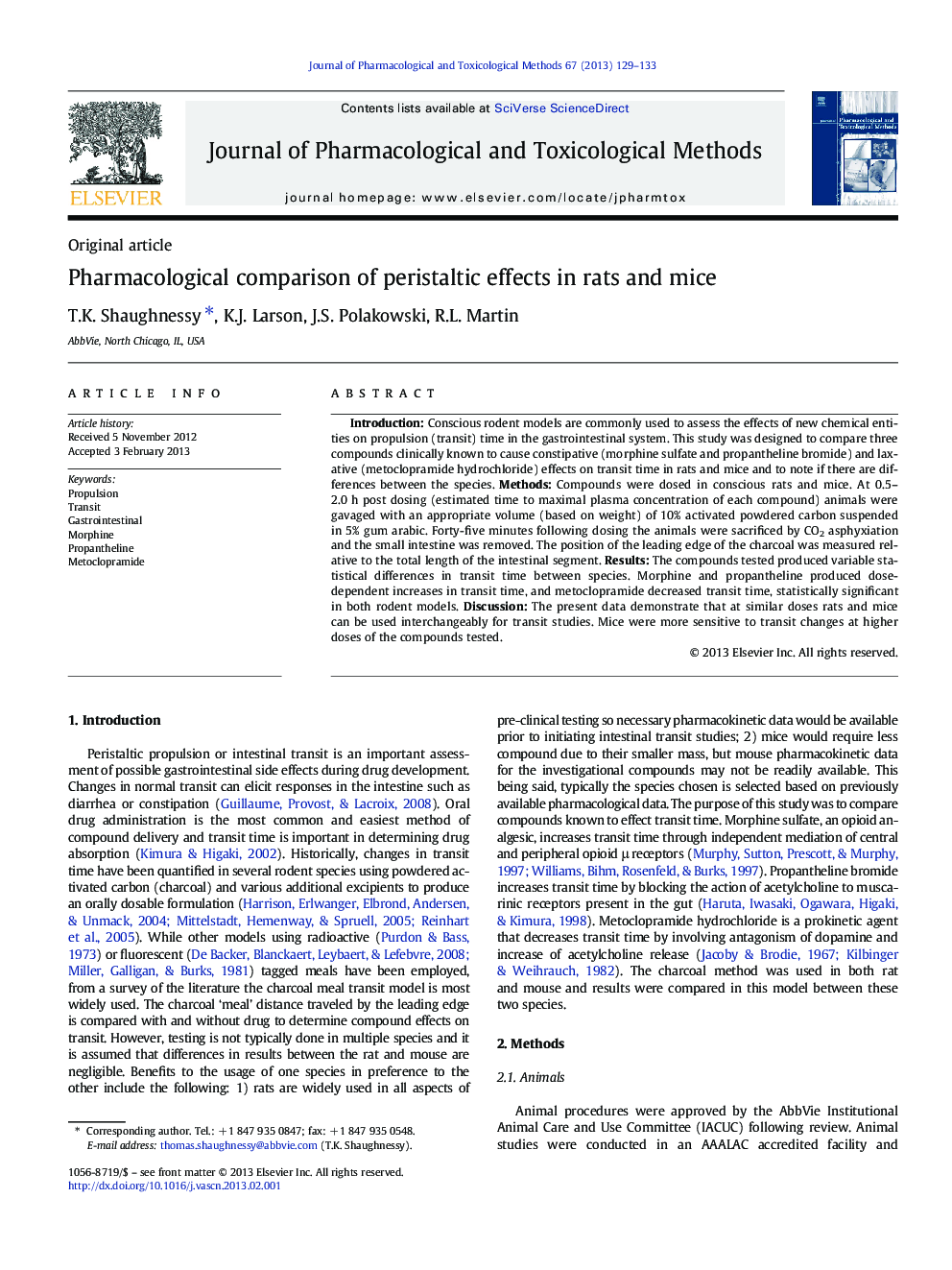| Article ID | Journal | Published Year | Pages | File Type |
|---|---|---|---|---|
| 2549081 | Journal of Pharmacological and Toxicological Methods | 2013 | 5 Pages |
IntroductionConscious rodent models are commonly used to assess the effects of new chemical entities on propulsion (transit) time in the gastrointestinal system. This study was designed to compare three compounds clinically known to cause constipative (morphine sulfate and propantheline bromide) and laxative (metoclopramide hydrochloride) effects on transit time in rats and mice and to note if there are differences between the species.MethodsCompounds were dosed in conscious rats and mice. At 0.5–2.0 h post dosing (estimated time to maximal plasma concentration of each compound) animals were gavaged with an appropriate volume (based on weight) of 10% activated powdered carbon suspended in 5% gum arabic. Forty-five minutes following dosing the animals were sacrificed by CO2 asphyxiation and the small intestine was removed. The position of the leading edge of the charcoal was measured relative to the total length of the intestinal segment.ResultsThe compounds tested produced variable statistical differences in transit time between species. Morphine and propantheline produced dose-dependent increases in transit time, and metoclopramide decreased transit time, statistically significant in both rodent models.DiscussionThe present data demonstrate that at similar doses rats and mice can be used interchangeably for transit studies. Mice were more sensitive to transit changes at higher doses of the compounds tested.
